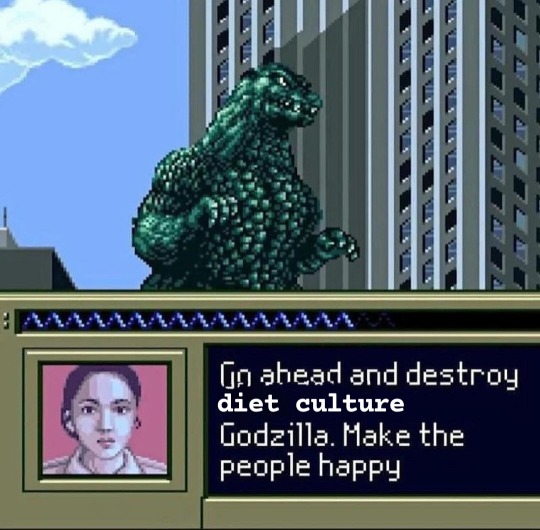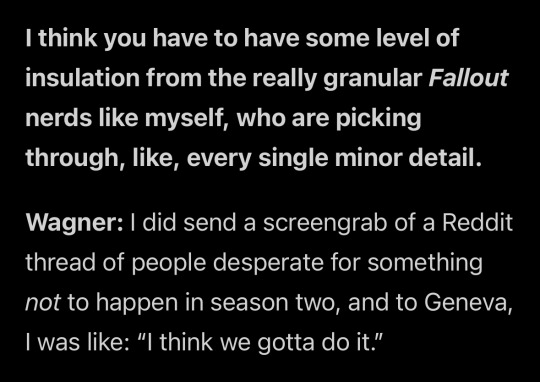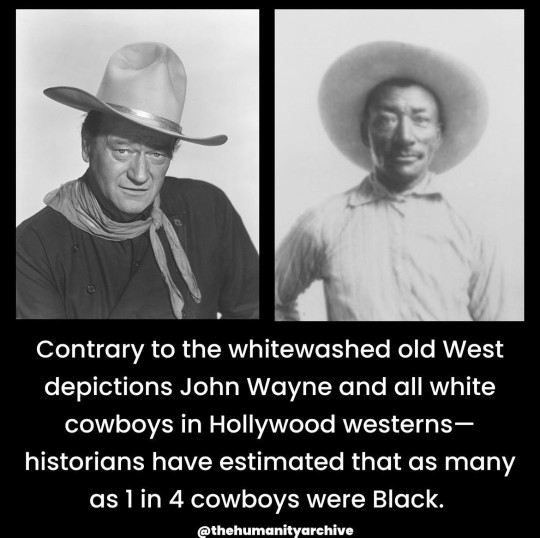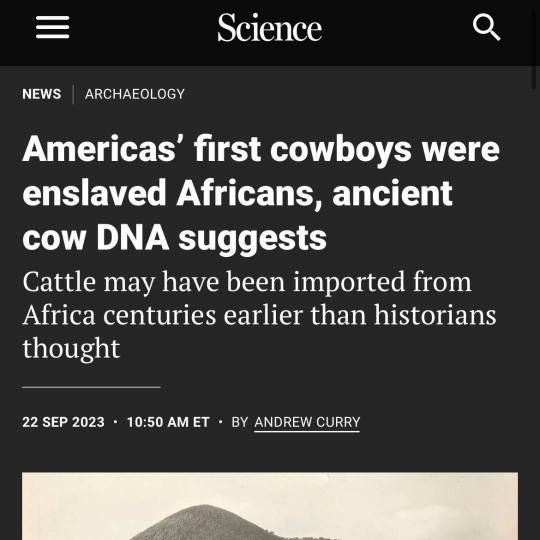#cultural perspectives
Text
Just watched Avatar: The Way of Water. I for one think it’s much better than the first film because it explores much deeper themes. Among these themes is how different cultures interpret neurodivergence differently. One of the lead characters, Kiri, is canonically neurodivergent - she is diagnosed with a form of epilepsy after having a seizure underwater. Importantly, humans attribute her spiritual experiences to frontal lobe seizures. The fact the movie embeds us in the Na’vi culture causes the audience to take their spiritual interpretation as granted for truth, but there is some ambiguity to it, and many real world cultures regard neurodivergent individuals as sacred. It’s the same phenomenon here, but our perspective is being inverted from what we are used to. This is also the reason I’ve always had some degree of dislike towards the term neurodivergence - it’s a reflection of our cultural bias to reduce personality and other cognitive differences to neurology. By inverting our biases, the film exposes us to them, though people may still overlook them anyway, just in the opposite direction.
Beyond her explicit neurodivergence, Kiri has other elements to her character which are neurodivergent-coded. I hesitate to say autistic-coded specifically at this point, but I have seen other people make the claim. One particular moment that stood out is when Kiri is bullied for her neurodivergent behavior. She also belongs to a different culture and subspecies from her bullies, but her neurodivergence was the impetus for their harassment, and the reason she was targeted over her siblings. This is a common experience for neurodivergent children, especially autistic children. While she struggles socially, she exhibits autistic hyper-empathy where she is closely connected to animals and aspects of nature. She also appears to visually stim frequently as she observes her environment, which is reflected in the movies visuals, and has a close attention to detail. These features lend to the impression that she neurodivergent, and possibly autistic - should also point out that epilepsy is a common comorbidity of autism as well.
The last thing I’m going to note about her character is that due to the circumstances of her birth some people believe her to be a Christ figure. The plausibility of this is increased by how circumstances of her mother’s death could both provide a pseudo-scientific explanation for how her mother could have underwent parthenogenesis and a spiritual explanation for how she could be the child of the god of their culture. This is fine and all, but I hope that if this is the direction the show ends up taking that they don’t skew so hard in that direction that her nuances as a relatable neurodivergent character are lost. It’s clear that there are going to do with more her character in the future, and I hope she remains the most interesting character in the franchise so far rather than a plot device as we see more of her.
#speculation#autistic empathy#epilepsy#avatar#waves#the way of water#bullying#spirituality#ambiguity#cultural perspectives#indigenous#neurodiversity#kiri#fictional characters#autistic coded character#Christ figure
61 notes
·
View notes
Text
The Philosophy of Death
The philosophy of death is a branch of philosophical inquiry that grapples with the nature, meaning, and implications of mortality and the end of life. It delves into existential, metaphysical, ethical, and practical questions surrounding death, dying, and the afterlife. Here are some key aspects and theories within the philosophy of death:
Existential Perspectives: Existentialist philosophers such as Jean-Paul Sartre and Martin Heidegger emphasize the significance of death in shaping human existence. They argue that awareness of mortality is integral to authentic living, as it compels individuals to confront the finitude of life and the freedom to create meaning in the face of death.
Metaphysical Considerations: Metaphysical inquiries into death explore questions about the nature of consciousness, the soul, and the existence (or non-existence) of an afterlife. Philosophers contemplate whether death represents the cessation of personal identity or the transition to another form of existence.
Ethical Reflections: Ethical discussions surrounding death address issues such as euthanasia, physician-assisted suicide, and the allocation of resources for end-of-life care. Philosophers debate the moral implications of decisions related to death, autonomy, and the relief of suffering.
Cultural and Religious Perspectives: Different cultures and religious traditions offer diverse interpretations of death and its significance. Philosophers examine the cultural, historical, and theological frameworks that shape beliefs about death, burial practices, mourning rituals, and conceptions of the afterlife.
Existential Anxiety and Fear of Death: Philosophers explore the existential anxiety and fear of death that pervade human consciousness. They analyze how individuals cope with the inevitability of death through denial, acceptance, or the pursuit of symbolic immortality through achievements, legacies, or religious faith.
Personal Identity and Continuity: Philosophers investigate the relationship between personal identity and the experience of death. They consider whether identity persists beyond physical death and how memories, relationships, and cultural narratives contribute to notions of continuity or discontinuity after death.
Practical Considerations: Practical discussions of death address legal, medical, and social aspects of end-of-life care, funeral rites, and the management of grief and bereavement. Philosophers engage with bioethical dilemmas, advance care planning, and the ethical responsibilities of caregivers and healthcare professionals.
Thanatology: Thanatology is the interdisciplinary study of death and dying, encompassing psychological, sociological, medical, and philosophical perspectives. Philosophers collaborate with other disciplines to investigate the psychological, social, and cultural dimensions of mortality.
Overall, the philosophy of death offers a rich and multifaceted exploration of one of life's most profound mysteries. It invites reflection on the human condition, the meaning of existence, and the enduring legacy of mortality in shaping individual and collective experiences.
#philosophy#epistemology#knowledge#learning#education#chatgpt#ontology#metaphysics#Existentialism#Ethics#Religion#Cultural perspectives#Fear of death#Personal identity#Bioethics#Bereavement#Thanatology#Existential anxiety#End-of-life care#Afterlife#Mortality#Legacy
1 note
·
View note
Text
Exploring Unity and Reconciliation: Miyo-wāhkōhtowin / Good Relations Project Tour

View On WordPress
#afforestation#alignment#Appreciation#celebration#celebration.#collaboration#community#compassion#conservation#creativity#cultural diversity#cultural exchange#CULTURAL HERITAGE#cultural perspectives#culture#dialogue#diversity#ecological#elders#empathy#empowerment#engagement#enrichment#environmental#exploration#global goals#Good Relations Project#growth#guidance#harmony
0 notes
Text
The Indulgence and Worth of Exquisite Dining: Exploring High-Priced Meals
What’s the most money you’ve ever spent on a meal? Was it worth it?
In a realm where gastronomy transcends its fundamental role as sustenance, it morphs into a portal unveiling realms of opulence, artistry, and unadulterated indulgence. Welcome to the realm of high-priced dining experiences, where culinary creations cease to be mere dishes and metamorphose into veritable masterpieces, and meals…

View On WordPress
#budget considerations#celebrity chefs#cost breakdown#cross-cultural perspectives#culinary artistry#culinary craftsmanship#culinary psychology#culinary stories#cultural nuances#Cultural perspectives#dailyprompt#dailyprompt-2022#diverse encounters#exclusive dining#Exquisite dining#extravagant experiences#fine wines#gastronomic journey#high-priced meals#indulgence#justified expenses#lasting memories#lavish dining#luxury dining#luxury ingredients#memorable experiences#opulence and palate#opulent meals#personal narratives#psychology of dining
0 notes
Text
The Marvelous Dance of Coincidence: When Destiny and Storytelling Collide
Writers and dreamers, gather ’round for a tale as old as time -aren’t they all?- a narrative element that has both captivated and confounded storytellers since the dawn of creativity: coincidence. Yes, my dear friends, today we embark on a journey to explore the craft of employing coincidence in our beloved forms of storytelling. We shall learn how to wield this powerful tool with finesse,…
View On WordPress
#Believable Coincidences#Chance and Consequence#Character Destiny#Character Journeys#Coincidence and Emotion#Coincidence Exploration#Coincidence in Asian Art#Coincidence in Film#Coincidence in Storytelling#Creative Coincidences#Cultural Perspectives#Destiny in Literature#Fate and Imagination#Fate and Plot#Fate Unraveled#Intriguing Connections#Mystery and Coincidence#Narrative Twists#Organic Coincidences#Plot Intertwined#Plot Revelations#Plot Surprises#Serendipity in Writing#Storytelling Craft#Storytelling Depth#Storytelling Magic#Storytelling Techniques#Surprising Encounters#Unpredictable Narratives#Unveiling the Universe
0 notes
Text

#end diet culture#haes#ffa#female feeder#feedee perspective#wg kink#belly kink#getting fatter#feeder kink#pro fat#aubrey gordon#feedism meme#feedist meme
1K notes
·
View notes
Text
Discovering the asexual spectrum is probably one of the best things that's ever happened to me. It answered so many questions, it's helped me have better, more intentional relationships overall. I'm not broken. I have a different experience, a different attraction style, and now largely a different viewpoint on relationship structures as a whole (though that's a different post, I think).
It has also pushed me into an interesting view of sexual experiences.
I don't dislike sex.
What I dislike is being viewed through a sexual lens, and the experience itself being viewed as "having sex with this person".
This isn't a semantic distinction, it's a viewpoint that may be difficult to really get clearly across (and to be honest I'm still working it out), so that's what I'm going to attempt here and hopefully not sound too pretentious while doing so.
Part of this dislike, I think, is largely based on the understanding of sex as a personal experience compared to sex as a cultural experience. Another part is related to my lived experience as woman and how our American society, especially, views women.
From my point of view, sex from a cultural perspective is largely about generating pleasure, acting on sexual attraction, and is strongly inwardly focused. This isn't to say the individuals participating only care about their own pleasure, or don't derive satisfaction from another's pleasure, but that even those actions are more indulgence for oneself. Their partner likes it when they do X, and that knowledge generates more sexual desires for them.
Or to put it more simply, "It's so hot to how my partner reacts when I do X thing they like for them". Or something like that. The person is engaged in a fully internal experience, how it makes them feel.
From a personal perspective, I tend to approach sex as a discovery experience. At first glance this sounds the same, my partner likes it when I do X... but it's the discovery of that which interests me. Sex is an opportunity to explore another person on a different level, very mindfully, very intentionally, and yet almost completely detached from myself. Even when "X" is done for me, what I'm focused on is how the other person is experiencing this activity they're doing for my pleasure. So, by comparison to the cultural perspective, my focus is entirely external.
This is really most evident in the first few times I have sexual experiences with a person, then it tends to drop off because almost universally, the person I'm having that experience with is having more of the cultural perspective experience and that gets kind of boring and impersonal.
I'm not interested in having sex for the simple sake of sexual pleasure, especially not someone else's, which is where the lived experience of being a woman in American society comes in. The most basic term for this is objectification. I am not seen as a person to discover, but rather as an fulfillment of someone else's desires.
When one goes through life with the lived experiences of existing as an object of desire and not as a person, and additionally having that reinforced through cultural expectations and messaging, it definitely erodes any interest in participating in the activity at all, and it's infinitely easier to simply say "I don't have sex" rather than try and explain the entirety of the above to someone.
Genuinely, the very few people who seem to approach it from a similar perspective also seem to be on the asexual spectrum, which to me makes this exercise of exploring this idea worthwhile. Can people have sex without it being about sex, for both? What would that experience be like? I think it's worth exploring both for the initial experience and also for ongoing learning about how that interaction can be built on.
Because, after all, I don't dislike sex.
0 notes
Text

posting this while i'm in the mood to share
maybe i'll get it done before the actual new years OTL
i want to a series of 12!boys in more japanese settings and i have some ideas
#tmnt#teenage mutant ninja turtles#my art#tmnt 2012#tmnt fanart#2012 mikey#2012 leo#2012 donnie#2012 raph#kotatsu#please don't b ully me about the perspective#i'm already doing it to myself ;v;#i see the 2012 turtles being more japanese than other versions#let them connect with their culture#CSP asset store saving my butt#if no one's got me at least the CSP asset store's got me
2K notes
·
View notes
Text
One thing that I think a lot of Disco Elysium meta misses (likely because a lot of it is very clearly written by young Americans writing from an intensely American-centric cultural perspective without even really realizing it) is that one of the singular and central themes of the game is massive-scale generational trauma in a home that is economically collapsing as its resources and people are being drained by an occupation. People have noted that no one tries to help Harry, despite the fact his mental illness is incredibly obvious to everyone around him. He tells Kim that he completely lost his memory, and Kim politely asks him to focus on the work. He tells Gottlieb that he had a heart attack, and Gottlieb tells him that if he’s still alive it couldn’t have been that bad. That he’ll drop dead sooner or later, but then so does everyone.
And that’s the most important thing: so does everyone. Look at Martinaise. Look at the world in which Harry lives. It is not our own, but it is adjacent to ours. More specifically, it is clearly adjacent to the states of the Eastern Bloc: overtaken and occupied by a faraway government that clearly doesn’t care about Revachol or its people. And that is obvious in every tired face, every defeated citizen, everyone trying to eke out a little happiness or meaning in spite of the overwhelming trauma and damage around them. The buildings are still half-destroyed. The bullet holes are still in the walls. The revolution was decades before, but it still feels to the people there like a fresh wound. The number of men of Harry’s generation who are not alcoholic or otherwise deeply fucked up are very few. Some, like Kim, hide it better, but the deeper you dig into his history, the more you realize how damaged Kim is. He’s more than a little trigger happy, and hates that about himself, but he is a product of his environment: Kim’s entire life is seeing people he cared about shot and killed, so his instinct now is to shoot first himself, to protect those few people left who still matter to him.
Harry is not unique in his trauma. He is a distillation of an entire culture of people who tried to rise up and make something beautiful, and were instead routed and occupied. He is trapped between the occupation and the people on the ground, along with all the rest of the RCM. Their authority comes from the occupying government, but it is implied that they were formed out of the remnants of the citizens militia which sprung up from Revachol itself as a way to try to mitigate some of the horrors being committed on its streets. The Moralintern sure as hell wasn’t going to get their hands dirty, so they happily conscripted (and therefore could better control) this group, who are only recognized in certain places, and whose authority mostly amounts to giving out fines. The RCM is corrupt, but it is corrupt in the same way its culture is. Bribes are considered standard with them, not a moral failing, but a necessity, so long as those bribes are correctly logged as ‘donations’. It’s how the RCM stays afloat, and the rest of Revachol completely understands that. Everyone would take a bribe if it meant they kept eating. Everyone would take a little under-the-table money if it meant keeping a roof over their heads. The officersof the RCM certainly don’t make enough to see a doctor. They have an in-house lazarus, and if he can’t fix them they just die. Mental health care? What mental health care? Harry doesn’t get it for the same reason no one else does: it doesn’t really seem to exist. There are no counselors, no psychologists, no psychiatrists. How would they even start? If the world is what is broken, if everyone is suffering a similar catastrophic amount, it makes sense that Harry’s trauma would simply get rolled up with all the rest. Kim asks him to get on with the job because Harry’s suffering is not remarkable in Revachol. He is one of an entire generation who have an astronomical number of orphans from the revolution, and so many younger people are left more or less orphans as their parents drink themselves into oblivion like Cuno’s father. So Harry’s truly unique attribute is embodying all that trauma, having it all inside of him, filling him to bursting.
To really engage with the themes of the game, engaging first and foremost with the reality of Revachol is imperative. Imposing our own reality onto Revachol, particularly if coming from an American perspective (which tend to have the habit of both viewing the world through an American lens and not realizing they’re doing it because they’ve never experienced a different lens), will always feel shallow to me because of this.
All that is to say, I would love to hear some more explicitly European meta about this game, and especially Eastern European meta. If anyone can point me to some good, juicy essays from that perspective, I would be grateful!
#Disco Elysium#is such a good game#but I found a lot of the meta around it frustratingly shallow#and very VERY American#which is also frustrating#given how clearly Eastern European the roots of this game are#I have no problem with people using a game or other work of fiction to inform their own lives and experiences#but I find it strange when people engage with the game#as though it was coming from an American perspective#asking why certain things happen or didn't#based on how they would play out or have played out in America#anyway this a rambly way to request some meta from other cultural perspectives#I am very interested in reading it!#Disco Elysium meta
2K notes
·
View notes
Text
The revelation of Lena sending Gwen to deliver the name and address to Mr. Bonzo begs the question - how much is the UK government aware of what the OIAR is doing? Is the OIAR the means for carrying out Britain's most illicit dirty work? Is Lena using Mr. Bonzo to assassinate enemies of the state?? Because I'm just imagining a group of seasoned anarchists huddled in a basement somewhere planning the Gunpowder Plot 2.0, and instead of MI6 or whatever busting in to dismantle them, a giant oozing mascot suit from the 90s shows up on their doorstep screaming its own name. How do you even regroup and recover from that psychologically.
#tmagp#tmagp 10#the magnus protocol#mr bonzo#tmagp spoilers#i hope he gets his foam suited ass beat by the anarchists ngl#sorry for my us-pop-culture-only perspective on uk revolutionary politics im doing my best over here
478 notes
·
View notes
Text
So, I saw an interview with the show’s writers and it gave me a lot of thoughts regarding fallout, narrative themes, and colonialism.

First off, I consider myself pretty misanthropic, but even I know “people are evil and innately bad and destructive” isn’t the theme of fallout. That’s doing a lot to lift the blame off of American imperialism and how *that* is the great evil the series warns us about, not “everyone is like this”. The first game opens with us seeing American soldiers executing prisoners of war as America annexes Canada to take petroleum and uranium: it’s clearly about American evil and military/imperial evil, not something innate to all people.
Second, fallout is unique *because* you see “civilization” in a post-apocalyptic setting. Tim Cain has a quote about fallout 1 where he said “my concern in this story is the ethics of life in the aftermath of nuclear war, not building a better laser gun”, and that’s pretty central to fallout. Rather than stagnating, it tries to show us how life would adapt and move on from the apocalypse. The world will change, yes, but it will change in that the apocalypse will become more distant. The future won’t look much like the day the bombs dropped.
Third, what a colonial view to have! “Where’s civilization? Where’s *everything*?” is what you got from westerns? You think railroads and churches being built in recently stolen territory (as is common in Wild West stories) is “civilization”? Wanna tell us what you think America was pre-colonization, Wagner?
It shows this perspective that doesn’t truly want to admit the flaws of America, either willfully or (more likely) due to ignorance. It’s a sheltered perspective, one that doesn’t know history, one that doesn’t know other cultures, one that doesn’t even know the themes of the story it’s writing for…
Edit: this next quote doesn’t have anything to do with those points, it just feels wrong to me to write so spitefully for a series…

#fallout#fallout tv series#my essays and rambles#just… the colonialist perspective here drives me mad#the way it lifts blame away from American evils#and says it’s innate to us all rather than cultural?#a white American perspective devoid of outside views and refusing to listen to them…
362 notes
·
View notes
Text
DP Prompt 1
Everyone in the Zone knew Phantom was an odd fellow.
He always acted like he knew everyone, even when it was their first meeting.
He never stuck around long, sometimes centuries would pass without anyone seeing him.
He always seemed eager to fight, in fact he usually assumed other ghosts wanted to fight him.
So when he started bogarting a permanent portal 24/7 everyone was a bit confused, but at least now he was staying in one spot long enough to regularly visit him, now all the younger ghosts can visit him for training.
TLDR: thanks to time travel shenanigans all of Danny’s rogues think he’s much older than them and don’t realize he’s a baby ghost.
#Danny phantom#danny fenton#ghost culture#ghost baby Danny#time travel shenanigans#misunderstandings galore#danny phantom prompt#writing prompts#prompt idea#ideas>#Danny’s first meetings with his rogues from their perspective#rogues learning Danny is a baby
517 notes
·
View notes
Text
One of the many things I find funny and irritating is the slant of a lot of interpretations of Alecto's name (that it's about feminine rage)--on this here wlw internet in the year of our lord 2024, it's easily made to figure as rage against God, or rage against patriarchy, or religious oppression, and therefore an allusion to the idea that she's going to get her vengeance on John for betraying and oppressing her somehow, but like
John is the one who named her Alecto. He's the one who named her that. So, naming her "Alecto" is alluding to the embodiment of John's rage--their rage, since they are joined inseparably (John even explicitly says that when he first perceives her: "You wouldn't stop screaming. You were so scared. You were so goddamn mad").
He says of Alecto to Harrow, "In a very real way, you are [Alecto's] children". At a very surface level, Alecto is (depending on the text or tradition), one of the Furies--famously, in several surviving Greek tragedies, who punish Orestes for the crime of killing his mother. In fact, in Aeschylus' Oresteia, they declare that they are specifically bound to avenge matricide.
So the name "Alecto" alludes to the nature of John's mission and how he sees it.
It also implies that his divine rage, the rage that gives him power, the power that makes him divine, that he either represents or wants to represent, is feminine rage. He was chosen by Earth (which, Furies are sometimes the daughters of Gaia); he is her champion, however he's managed to fuck that up. Once the truth of that comes out, it becomes clear that all of his power comes from her.
And that's why you get statements from Tamsyn Muir like:
“[T]he God of the Locked Tomb IS a man; he IS the Father and the Teacher; it’s an inherently masc role played by someone who has an uneasy relationship himself to playing a Biblical patriarch. John falls back on hierarchies and roles because they’re familiar even when he’s struggling not to. Even he identifies himself as the God who became man and the man who became God. But the divine in the Locked Tomb is essentially feminine on multiple axes – I think Nona will illuminate that a little bit more."
So yes, he plays the role of Emperor and God and Teacher, with all of the things that implies. And I don't think it should be discounted. But he also is (and partly sees himself as) the chosen champion of a goddess, or what is for all intents & purposes for a human like him a goddess. He is her avenger, and while she sleeps, her avatar.
And I don't think we're meant to read him purely as a parasite who's taking advantage of her to gain power for himself, either. Or an oppressive, Kronos-like figure. Especially if you consider Palamedes' theory of the Grand Lysis, even if he was purely motivated by desire for power before (which I really doubt), there are parts of each in the other, now. What was clear and separate before is uncertain and interpenetrated. Is his rage his own, or hers? Is his mission of revenge his, or hers? If he wants power, is that his own selfishness, or her desire to survive?
And does it matter?
#the locked tomb#tlt meta#john gaius#i really wish there wasn't such an intense desire to find the worst possible interpretations of johns' actions#because like. they're plenty hurtful on their own! they're plenty shitty!#there IS however something tamsyn muir is trying to express through the series and it's fairly complicated-otherwise it wouldn't be a serie#and i don't think it actually helps us to turn john into a cardboard cutout labeled 'evil'#or apply tropes we've marinated in from radfem-informed segments of online wlw culture about how men are parasites on the Divine Feminine#or apply the messages of other shows with a big emphasis on queer and wlw themes--like spop--to something that just fundamentally isn't the#there is more than one way to talk about lesbian religious trauma and there is more than one narrative around it#and more than one perspective on it#i wish that people would try harder to experience the story on its own terms
227 notes
·
View notes
Text


"...the first cowboys lived in Mexico and the Caribbean, and most of them were Black.
That’s the conclusion of a recent analysis of DNA from 400-year-old cow bones excavated on the island of Hispaniola and at sites in Mexico. The work, published in Scientific Reports, also provides evidence that African cattle made it to the Americas at least a century earlier than historians realized.
The timing of these African imports—to the early 1600s—suggests the growth of cattle herds may have been connected to the slave trade, says study author Nicolas Delsol, an archaeozoologist at the Florida Museum of Natural History. “It changes the whole perspective on the mythical figure of the cowboy, which has been whitewashed over the 20th century.”
x
#cowboys#african heritage#caribbean history#mexican history#dna analysis#historical perspective#slave trade#cattle herds#cultural reevaluation#17th century#black cowboys#early americas#black history
322 notes
·
View notes
Text
Cultural Perspectives: Exploring the Richness of Diverse Approaches to Diabetes, Dietary Management, and Treatment
Delve into the captivating world of Cultural Perspectives on diabetes, where various cultures offer unique insights and practices in dietary management and treatment. This comprehensive exploration encompasses traditional practices, modern interventions, and the profound impact of cultural beliefs on diabetes care.
Introduction
In the realm of global health challenges, diabetes looms large,…

View On WordPress
#Acculturation and health#Addressing barriers#Ancient healing practices#Beliefs and stigma#Collective responsibility#Community education#Cultural attitudes#Cultural competency#Cultural perspectives#Cultural tailoring#Diabetes#Diabetes prevention efforts#Dietary management#Education and health literacy#Empowering communities#Family Support#Fasting practices#Global health#healthcare access#Herbs and alternative therapies#Indigenous medicine#Integrating traditional and modern treatments#Managing diabetes in a globalized world#Migration and diabetes risk#Modern approaches#Poverty and limited resources#Prevalence#Rituals and ceremonies#Socioeconomic factors#Traditional diets
0 notes
Text
The whole transandrophobia discussion thing is weird bc it feels like it's a bunch of poc and jewish trans people being like "here are my experiences of how specifically being MASCULINE had affected me, and the discrimination and violence I experienced based on that. And here is how that relates to me being a racial/ethnic minority"
And then a few loud white trans people going "ohhh you wanna be oppressed so bad you *slur*. This is why there aren't any poc in your movement it's because REAL poc understand intersectionality"
#hot take white culturally christian or athiest leftests do not properly interpret white jewish ppl#like as a poc i and other poc understand that white jewish ppl often get racial privilege#but a) not always b) they experience oppression based off of their ethnicity#idk from my perspective it seems like white goyim either see jewish ppl as 'the disgusting exotic enemy' or 'basically WASPS but they#wanna feel special'#with no nuance. no recognition#look maybe this next part is bc i didnt grow up with jewish ppl and therefore didnt know until I was 18/19 that jewish ppl can count as#white. but like. idk how to say this. i dont wanna speak over white jewish ppl. but like.#jewish ppl that have obvious jewish features (whether Ashkenazi facial features OR they dont have those but wear eg kippahs)#arent like. white. idk pls correct me if this is antisemitic or incorrect or something.#but like. light skinned =/= white obviously.#i just struggle to see how my bestfriend with her lovely dark eyes and curls and nice nose counts as 'white' when ppl call her the k slur#across the street. ykwim?#like white doesnt mean light skinned. it means 'part of the in-group of white ppl'#like my ex who is white and jewish? yeah hes white. if he didnt wear his necklace then goyim wouldnt know. you know#like obvs he still experiences ethnic oppression but he doesnt experience racial oppression#but other ppl with more prominent eg ashkenazi (im singling them out bc most jewish ppl here are ash.) like i dont GET how they have racial#privilege.
594 notes
·
View notes